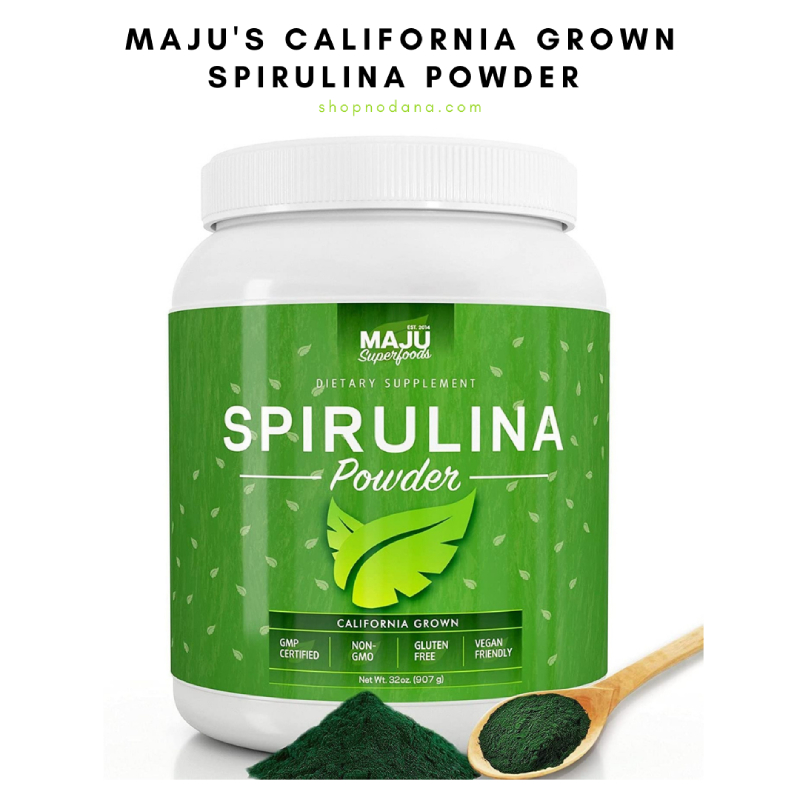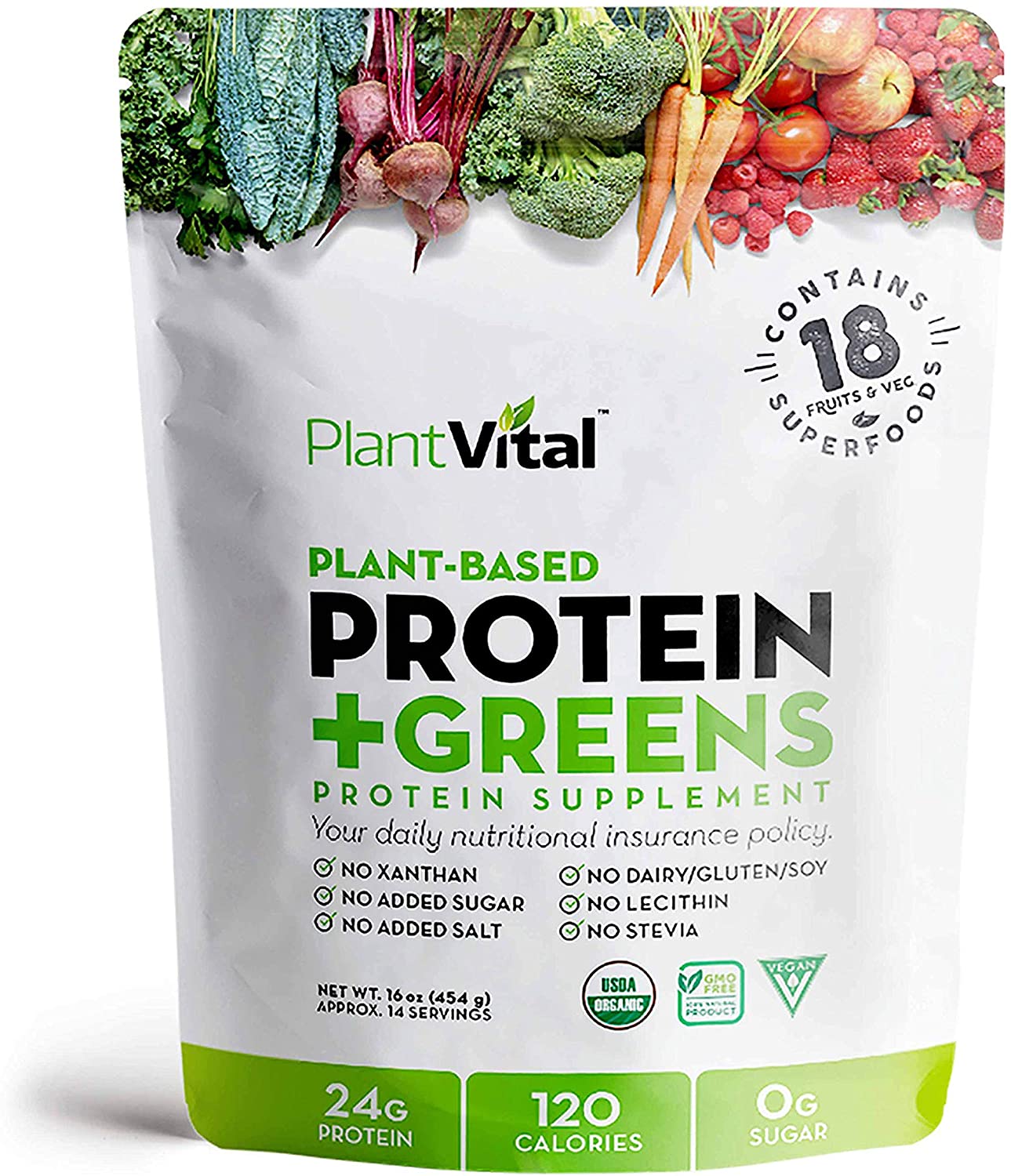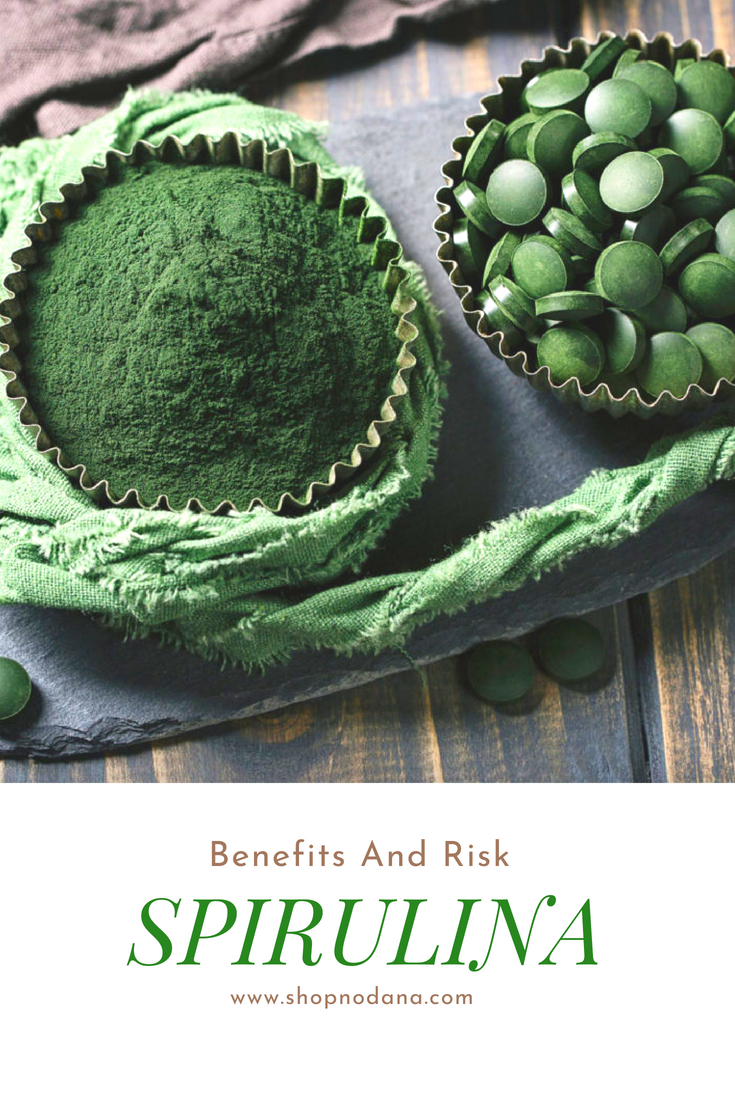Benefits of Spirulina And Risk of This Super Food
The benefits of Spirulina are one of the most researched topics and plants in recent times. Spirulina is considered the world’s first superfood, and one of the most nutritious foods on Earth.
Spirulina is a microalga that has been consumed for centuries because of its high nutritional value and wonderful health benefits. Nowadays popular lifestyle personalities and magazines mentioned Spirulina as a secret, potent “superfood,” and a “miracle” from the sea.
What is Spirulina?
Spirulina is a spiral-shaped microalga that grows naturally in the wild in warm, freshwater lakes. It can grow in both fresh and saltwater. These blue algae are a type of bacteria called cyanobacterium.
Cyanobacteria can produce energy out of sunlight like plants via the process called photosynthesis.
Spirulina was popular and taken by the Aztecs back in the day. It became popular again and came on the front page when NASA proposed that Spirulina can be grown in space and used by astronauts
That is usually consumed either in powder form or as a supplement with daily meals. It is o as a supplement to the diets of both omnivores and vegetarians.


Nutritional value of Spirulina:
A standard daily dose of spirulina is 1-3 grams, but doses can be up to 10 grams per day.
It is actually quite amazing how nutritious, these blue-green algae are!
100 g (3.5 oz) of dried spirulina powder contains
- Protein: 57.47 g
- Energy: 1,213 kJ (290 kcal)
- Vitamin B1 (Thiamin): 2.38 mg (207%)
- Riboflavin (Vit. B2) -3.67 mg (306%)
- Niacin (Vit. B3)-12.82 mg (85%)
- The Vitamin B6-0.364 mg (28%)
- Vitamin C-10.1 mg (12%)
- And Vitamin E-5 mg (33%)
- Calcium-120 mg (12%)
- Iron-28.5 mg (219%)
- Magnesium-195 mg (55%)
- Potassium-1363 mg (29%)
- Sodium -1048 mg (70%)
- Zinc-2 mg (21%)
- Carbohydrates -23.9 g
- Sugars -3.1 g
- Dietary fiber- 3.6 g
- Fat- 7.72 g
According to its nutritional value, spirulina may literally be the single most nutritious food on the planet!
A single tablespoon of spirulina powder contains a small amount of fat, including both omega-6 and omega-3 fatty acids in a ratio of about 1.5:1.
The protein in spirulina is considered excellent and comparable to eggs. It contains all the essential amino acids that we need for our body’s internal chemical reactions.
Is Spirulina Good For You?
Studies proved that spirulina can activate the macrophages, natural killer cells, and other B and T cells that possess antioxidant properties in our bodies. Research also shows that blue-green algae exert beneficial effects on our neurological health.
Besides this spirulina can help in the prevention of chronic diseases like diabetes, cancer, and even chronic asthma.
 The Health Benefits Of Spirulina:
The Health Benefits Of Spirulina:
1. Spirulina Boosts Brain Health
2. Prevents Cancer
Laboratory tests have shown that these algae have the ability to prevent DNA mutations. Its antioxidants prevent oxidative stress, which is marked as one of the primary causes of cancer.
3. In Diabetes Treatment
Studies on diabetic animals proved that a combination of spirulina and other herbal extracts helps to decrease blood glucose and triglyceride levels.
Spirulina was also found to be effective in improving the lipid profiles of patients with type 2 diabetes.
There is research In 2017 the benefits of spirulina and its positive effects on blood glucose levels were published in papers.
The research proved that spirulina decreased blood glucose levels in diabetic mice and was beneficial to those with type 1 diabetes.
4. Spirulina Prevents Arsenic Poisoning
4. Improves Symptoms of Allergic Rhinitis
Allergic rhinitis is called inflammation in the nasal area, triggered by environmental allergens, such as pollen, animal hair, or any other particles in the air.
Studies have shown that Spirulina is a popular alternative treatment for symptoms of allergic rhinitis and dramatically reduces symptoms like nasal discharge, sneezing, nasal congestion, and itching
5. Spirulina Enhances Heart Health And Can Lower LDL and Triglyceride Levels:
One of the great benefits of spirulina is it prevents atherosclerosis and reduces blood cholesterol levels and this invariably improves our heart health.
At the same time, they can also increase the level of good cholesterol(HDL), which is again required for a healthy heart.
Studies have shown that 4.5 grams of spirulina a day could lower blood pressure levels and helps the blood vessels to relax and dilate.
6. Improves Immune System
Adding spirulina as a food or as a supplement improves the activity and effectiveness of some important cells in our immune system.
Researchers proved that Natural Killer Cells are significantly improved with the supplementation of spirulina. Which find and destroy cell tumors and are linked to the early stages of cancer.
Some early studies suggest that defense against viral infections may be assisted with Spirulina supplementation.
7. Benefits of Spirulina- Aids Weight Loss
One of the other benefits of Spirulina is, it is dense in protein, and rich nutrients can promote weight loss through certain mechanisms.
Consuming protein often leads to fat burning and the development of lean tissues. Spirulina is also low in calories, but rich in proteins which is another plus point for anyone looking to lose weight.
8. Strengthen the Muscle
Spirulina has antioxidant properties that can help athletes and physically active people minimize their muscle fatigue or damage.
Some studies show that Spirulina appears to be beneficial to improve muscle strength and endurance.
Spirulina supplementation in sports helps to improve both muscle strength and exercise performance.
9. Spirulina Fights Inflammation
Spirulina is highly rich in powerful antioxidant and anti-inflammatory properties.
Phycocyanin, the active component of spirulina, prevents the production of inflammatory signaling molecules – and this means they help to fight against inflammation.
Spirulina was also found very effective against arthritis. Treatment with spirulina can effectively protect against cartilage destruction and other inflammatory markers.
10. Fight With HIV
Studies show that regular supplementation of this dark blue-green algae can help to deal with HIV symptoms. It needs more research on this topic- the benefits of Spirulina on HIV.
Epidemiologists are researching why people in Japan, Korea, and Chad have low HIV/AIDS rates. One study published in 2012 in the Journal of Applied Phycology show that it could amount of algae in these areas people consume!
11. Treat Candida
Spirulina can be an effective antimicrobial agent. Spirulina helps to increase the growth of healthy bacteria in the gut and prevent candida.
12. Acne Treatment
Blue-green algae can effectively improve our skin’s metabolism.
The antioxidants in spirulina help the body to fight against free radicals and flush out the body’s toxins. It has a direct impact on our skin health.
Spirulina promotes the fastest elimination of dead skin cells. They also promote the growth of new skin cells and recovers any damage to the skin and prevent acne scarring.
13. Delays Aging of the Skin
Tyrosine, vitamin E or tocopherol, and selenium are known and famous for the effects of their anti-aging food. Spirulina contains all these elements as well.
It is known that Tyrosine slows down the aging of the skin cells. One of the benefits of spirulina is the antioxidants present in this algae eliminate the free radicals that are responsible for skin aging and wrinkles.
How to use spirulina as a face mask:
Make a smooth paste with some spirulina and water and apply it to the face. Rest for 20 minutes and wash it off with normal water.
This amazing mask will make your skin soft and prevent all the signs of aging like wrinkles, scars, and dark spots. It has properties that can help to lighten the skin and as a treatment for skin pigmentation.
14. Boosts Hair Growth
The protein properties in spirulina reduce the extreme hair fall and hair thinning. It can be used as an external mask and consumed in a daily dose.
Spirulina is used as an important ingredient in shampoos and hair conditioning treatments.
What are the side effects and risks of Spirulina?
Spirulina contains sea salt. One single teaspoon of spirulina powder contains 0.13g of sodium. If salt is harmful to you or you have high blood pressure it is time to be concerned. Always talk to your GP before taking any amount of supplement.
Those who are taking other medicines, or pregnant or breastfeeding, or younger than 18 years, should consult with their GP before taking spirulina supplements.
Phenylketonuria patients should avoid spirulina completely as it contains an amino acid called phenylalanine which they cannot metabolize them
These are the reasons why blue-green algae are one of the most researched plants today. The benefits of spirulina are surprising and remarkable.
You can include spirulina in your daily diet without any doubt. But always make sure that you purchase it from reputable brands because it can be contaminated with toxic bacteria named cyanobacteria.
